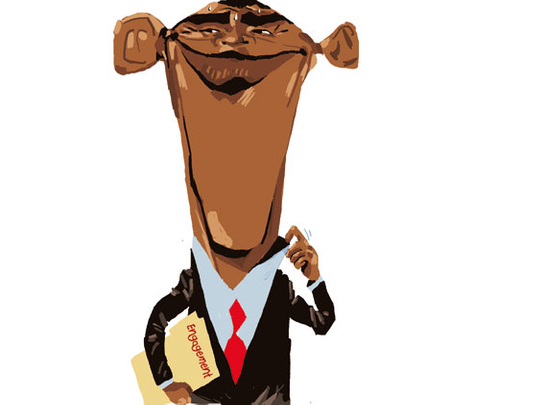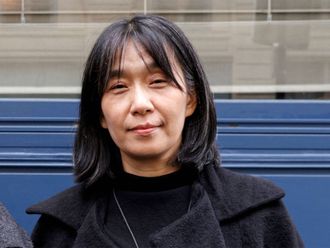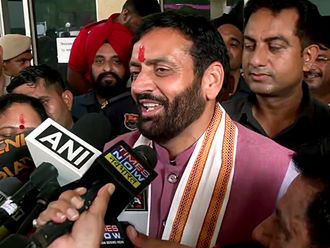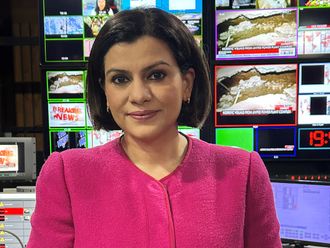
During the 2008 presidential campaign, Barack Obama promised he would end America's diplomatic isolation and pursue "engagement" in foreign affairs. His opponent tried to turn his proposal against him by saying it would be reckless and naive. Obama regarded his election as a mandate for engagement, and no campaign promise has been more faithfully carried out by his administration.
Engagement is not in itself foreign policy. But it is a crucial part of the process by which the US seeks to advance its international goals, and one in which the country can and should invest great human and political capital.
With former senator George Mitchell engaging in "proximity" talks with the Israelis and Palestinians — discussions between the parties through an intermediary rather than face to face — the United States has entered a new and difficult phase of Obama's policy of engagement. The atmosphere is far from promising. For many years, the parties met regularly in correct if not cordial discussion. But rancour over colony expansion has kept them apart for the past year. Breaking the impasse and restoring face-to-face meetings will require all the creativity and patience that Mitchell showed in his successful peace talks in Ireland.
During the Clinton administration, I made 20 trips to the region for proximity talks to try to broker a deal for the return of the Golan Heights to Syria, an effort that revealed all the weaknesses of proximity talks. The absence of confidence-building, face-to-face discussions between those at the highest ranks contributed to the inability of Syrian president Hafez Al Assad to overcome his paranoia over Israel's intention. The assassination of prime minister Yitzhak Rabin on November 4, 1995, similarly deprived the negotiations of his essential authority. In the end, even the strenuous efforts of the US could not put the talks back on track.
Beyond Mitchell's efforts, Obama has been using engagement in pursuit of his foreign policy goals. One of the president's chief goals, as he said on receiving the Nobel Peace Prize, is "to prevent the spread of nuclear weapons, and to seek a world without them". His personal intervention in talks with President Dmitry Medvedev of Russia was instrumental in finalising a replacement agreement for the Strategic Arms Reduction Treaty, which expired in December. The signing in Prague last month was a tribute to their mutual engagement, producing major reductions in both nations' nuclear arsenals as well as advancing US-Russian ties in general.
The priority that Obama is giving to engagement has also been apparent in recent exchanges with China. The president, unhappy when the Chinese sent lower-level diplomats to meet with him at the climate change summit in Copenhagen, announced an arms package for Taiwan. The Chinese objected stridently.
Mutual respect
To prevent the exchanges from spinning out of control, the president sent Deputy Secretary of State James Steinberg to Beijing to reassure the Chinese that the US adheres to the one-China policy and does not support independence for Taiwan or Tibet. The Chinese responded by announcing that President Hu Jintao would go to Washington for a nuclear summit and, when he was there, Hu said that China was open to considering new sanctions against Iran over its nuclear programme.
Improvement in human rights has been the policy goal of recent engagement with the repressive nation of Myanmar. Late last year, two senior US diplomats went to Myanmar, pressed the ruling junta to loosen restrictions and were permitted to meet with opposition leader Aung San Suu Kyi. Parliamentary elections, though with troublesome restrictions, are now scheduled for the first time in 20 years, and the junta released a pro-democracy activist from prison. Not much progress, but enough to be encouraging.
Policy goals, of course, sometimes remain elusive despite efforts at engagement. Iran, while initially intrigued by the idea of shipping uranium abroad for enrichment under International Atomic Energy Agency supervision, has now descended into a sea of political invective in the wake of controversial election results and an emerging internal opposition. Nevertheless, the US president is working to build a coalition to impose a stricter set of sanctions than those presently in place to dissuade Iran from pursuing its nuclear ambitions. Engagement with all the members of the Security Council, especially Russia and China, will be vital to achieving passage at the United Nations. As he did with Russia and China, the president will make full use of engagement to achieve that goal.
Obama has judiciously used engagement in pursuit of US foreign policy goals. The measure of his success in using this tool will be judged by the effectiveness of US foreign policy in the hardest cases, such as Iran and North Korea.
- Warren Christopher was US secretary of state from 1993 to 1997.











